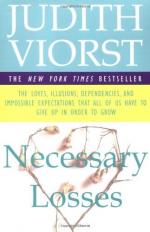
|
| Name: _________________________ | Period: ___________________ |
This quiz consists of 5 multiple choice and 5 short answer questions through Chapter 17.
Multiple Choice Questions
1. Which sex tends to have only superficial relationships?
(a) Women.
(b) Men who were abused or abandoned as children.
(c) Both.
(d) Men.
2. Madame Bovary uses what metaphor to describe marriage?
(a) A great rosy-plumaged bird soaring in the splendors of poetic skies.
(b) An intimate and joyful day on a private beach in Fiji.
(c) An exquisite French dessert, delicious, but hard to create.
(d) A beautiful spring day spent in a field of wildflowers.
3. According to the author, what do babies need?
(a) A consistent caregiver.
(b) Clothing.
(c) Fathers.
(d) Mothers.
4. According to Chapter 9, how do we eventually resolve the Oedipus complex?
(a) Through punishment and shame.
(b) Through our conscience.
(c) By becoming adults.
(d) Through guilt.
5. Escaping to an earlier stage of development in an effort to deal with socially unacceptable feelings toward a new sibling is called what?
(a) Avoidance.
(b) Escapism.
(c) Regression.
(d) Two steps back.
Short Answer Questions
1. Viorst states that some oneness experiences can go too far and cause what?
2. What was the name of the "weird little novel" mentioned by Viorst in Chapter 8?
3. Viorst quotes this book, written by Kathrin Perutz, in Chapter 13.
4. Which fictional character mentioned in the book chooses not to become a man, and stay as a boy forever?
5. According to Viorst, grown-up love must begin with what?
|
This section contains 261 words (approx. 1 page at 300 words per page) |

|




